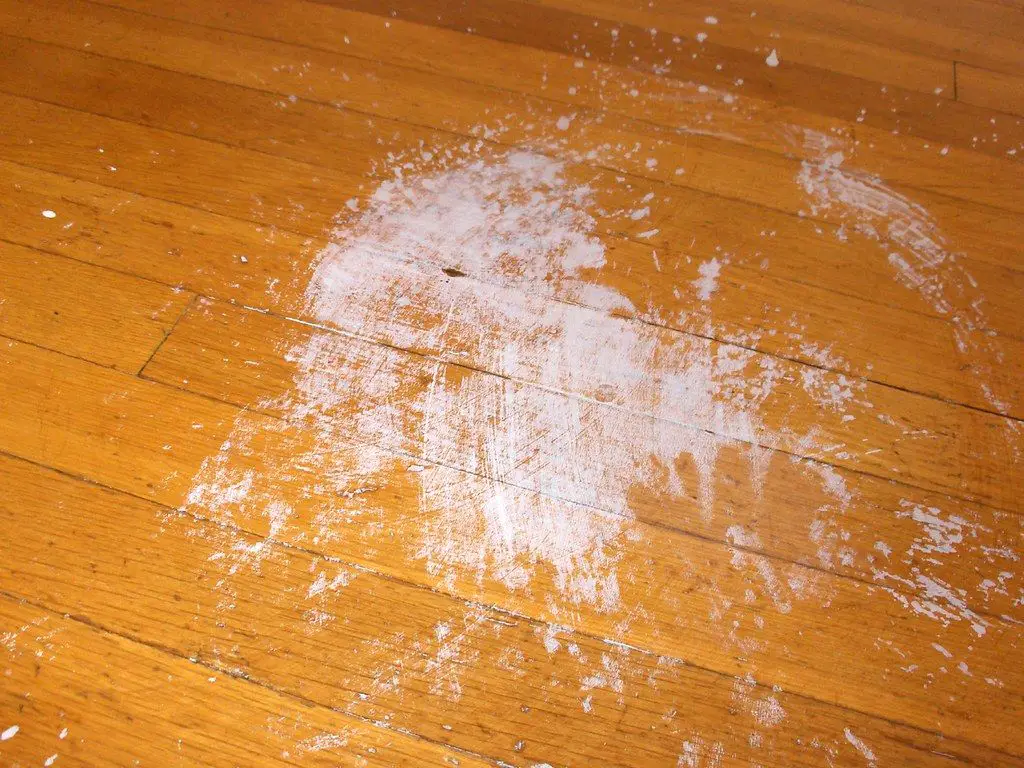Hardwood floors can be damaged by many common household cleaners and chemicals. One cleaner that often gets used on hardwood is rubbing alcohol, or isopropyl alcohol. Rubbing alcohol is found in most homes and can be an effective cleaner due to its ability to cut through grease and dissolve substances. However, rubbing alcohol is not always safe for hardwood floors. Using rubbing alcohol on hardwood requires caution to avoid potential damage.
Page Contents
What is Rubbing Alcohol?
Rubbing alcohol, also known as isopropyl alcohol, is a type of denatured alcohol commonly found in most homes. It is an effective disinfectant and cleaning agent. Rubbing alcohol is made from the fermentation of carbohydrates into alcohol, followed by the addition of poisonous additives to make it unsafe to drink. The additives denature the alcohol.
There are a few different grades and purity levels of isopropyl alcohol:
– 70% isopropyl alcohol – This is the most common grade found in homes. It contains 70% isopropyl alcohol and 30% water.
– 90% isopropyl alcohol – This grade contains 90% isopropyl alcohol and 10% water. It evaporates faster than 70% grade.
– 99% isopropyl alcohol – This high purity grade contains 99% isopropyl alcohol. It is used for electronics cleaning and disinfecting.
– 100% isopropyl alcohol – This is pure isopropyl alcohol without any water content. It is quite rare and used for specific industrial applications.
The most common household rubbing alcohol is the 70% isopropyl alcohol solution. At this dilution, it is an effective disinfectant against many bacteria, viruses, and fungi while still being safe to touch and work with.
Is Rubbing Alcohol Safe for Hardwood Floors?
Using rubbing alcohol on hardwood floors is controversial. Some say it is fine in small doses while others warn to never use it. Here is a more detailed look at whether rubbing alcohol is safe for hardwood floors:
Potential Damage
There are a few ways that rubbing alcohol can potentially damage hardwood floors:
– Removes Protective Finishes – Most hardwood floors have a protective layer of polyurethane or other sealant. The alcohol in rubbing alcohol can break down this protective finish.
– Warps Wood – Since alcohol evaporates quickly, it can warp wood floors as the boards lose moisture rapidly.
– Discolors Wood – The chemicals in rubbing alcohol may interact with wood stains or finishes and cause discoloration over time.
– Dries Out Wood – Evaporation of the alcohol can dry out hardwood boards, causing cracks, splinters or cupping.
So rubbing alcohol does pose some risks in terms of damaging the appearance and protective finish of hardwood flooring. The damage depends on the amount and frequency of alcohol applied.
Safety Precautions
While rubbing alcohol has risks, it can be used safely on hardwood if proper precautions are taken:
– Test on a small hidden area first to check for any negative effects.
– Apply only a small amount using a lightly dampened cloth. Do not saturate the floors.
– Read the manufacturer’s instructions for your specific floors. Some solid hardwood or engineered floors may be more resistant to alcohol than others.
– Rinse the floors with clean water after using rubbing alcohol. This prevents excessive drying.
– Use infrequently. Daily cleaning with alcohol may damage surfaces over time.
With careful use, most hardwood floors can tolerate occasional cleaning with diluted rubbing alcohol. But it is not recommended for regular or heavy-duty cleaning.
Better Alternatives for Cleaning Hardwood
There are several alternatives that are safer and more effective for routine hardwood floor cleaning:
1. Mild Dish Soap and Water
A gentle soap and water solution is one of the best choices for hardwood floor cleaning. Mix a small amount of mild dish detergent like Dawn with warm water. Use a damp mop and avoid excessive moisture. The soap helps cut through oils and dirt without the risks of alcohol. Rinse well after mopping.
2. Vinegar and Water
For a disinfecting and light cleaning solution, mix 1 cup white vinegar per 1 gallon of warm water. The vinegar will sanitize the floors without stripping finishes. Add a couple drops of dish soap for added cleaning power if needed.
3. Hardwood Floor Cleaner
There are also dedicated hardwood floor cleaning products available. Look for a brand specifically made for your floor’s finish. Stay away from acidic or ammonia-based cleaners that can damage surfaces. A pH-neutral cleaner is best for regular use.
4. Olive Oil Soap
Olive oil soap is a gentle eco-friendly way to clean hardwood floors without chemicals. It helps condition the wood to prevent drying. Make sure to use a pure castile olive oil soap. Check manufacturer’s directions since not all floors can be cleaned with oils.
When Rubbing Alcohol May Work
While not ideal for routine cleaning, there are some scenarios where using rubbing alcohol on hardwood floors can be effective:
– Removing permanent marker stains
– Getting rid of wax or grease build up
– Prepping floors prior to refinishing
– Disinfecting floors after water damage or flooding
In these special cases, the benefits of using alcohol may outweigh the risks for hardwood floors. Just be sure to test first and follow safety precautions.
Conclusion
Rubbing alcohol can potentially damage hardwood floors with regular use. The alcohol can strip protective coatings, dry out the wood, discolor finishes, and warp boards over time. However, diluted isopropyl alcohol can be used safely on sealed hardwood floors in small doses if care is taken. Limit use only when necessary. For routine cleaning and maintenance, choose a hardwood floor cleaner made specifically for the finish or stick to mild dish soap and water. Be sure to read manufacturer’s recommendations for your floors and test on a discreet area before widely using any new cleaner. With some caution, rubbing alcohol can be used on hardwood floors for occasional cleaning without causing harm.
